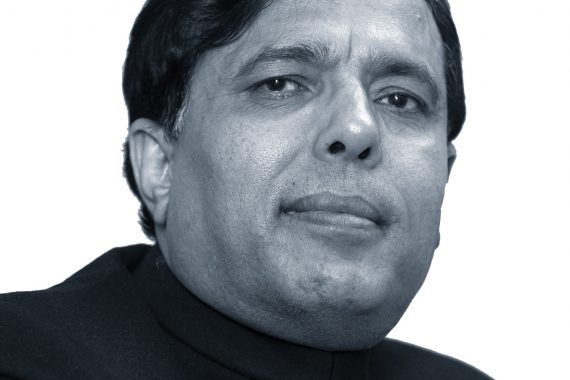Another report isn’t enough to fix racism in the NHS

Theresa May has vowed to tackle racism after a Government audit revealed the shocking extent of discrimination in UK. So many reports, dating back to the Macpherson inquiry have said the same thing about addressing racism and unfairness in Britain – and far too little has changed.
Yet another report, but without honest action, won’t fix race inequality. While our politicians seek to portray Britain as a tolerant society, the truth is far more complex and uncomfortable. Racism and discrimination – often hidden, sometimes unconscious – remain a major source of social tension and conflict. Britain has a massive problem with racial inequality. Life and work outcomes in the UK vary enormously depending on ethnic background.
The poor, discriminatory treatment of BME staff in the NHS has been a long recognised stain upon its reputation. In 2001, a King’s Fund report, Racism in Medicine, generated powerful debate after finding that bullying and discrimination were a daily part of life for black and Asian doctors. Then in 2003, a BMA survey revealed more than 80% of minority ethnic doctors believed that their ethnicity had a negative effect on their career advancement. In 2004 the Royal College of Psychiatrists accepted that racism existed in the NHS and in their own institution.
I have worked in the NHS for over 35 years and have seen the devastating effects of racism and discrimination first hand on people’s lives. Data for the English National Health Service shows that in 2015 of the 1.22 million total staff, around 235,000 were non-British – around 19%. For nurses the share of non-British staff was 21 per cent. For doctors, the non-British share was 30%. Despite these figures, a survey of every NHS trusts in England reveals that black and ethnic minority workers are hugely under-represented among senior management.
The NHS thrives on equality and diversity. In some specialities, such as general practice, we know that almost a third of the emerging workforce is overseas-qualified. Without these immigrant workers the NHS in general and general practice in particular would come to a standstill. Estimates indicate that BME doctors have saved the UK billions in training costs alone.
Despite this, many international medical graduates (IMGs) who have been the workhorses of the NHS, are over-represented in the lowest paid, least glamorous specialties in the least popular parts of the country.
In social care the picture isn’t much better; the number of BME directors of adult services in England is four out of 150.There are only five BME chief executives across more than 300 NHS organisations.
The NHS Equality and Diversity Council last year published the report of the NHS Workforce Race Equality Standard (WRES) commissioned by NHS England chief executive Simon Stevens, highlighting the experiences of BME and white employees from the 2015 staff survery at every NHS trust across England, which showed that racist bullying of BME individuals was rife at most NHS Acute Trusts.
Unequal treatment, racism and barriers to career progression are serious issues not just for the individuals affected but for the equality, efficiency and quality of the NHS overall. Without immigrant staff, the health service would come to a standstill. So why aren’t BME health professionals treated fairly?
There’s a lesson that, in post-Brexit Britain with the possible exit of scores of medical professionals, equality of opportunity need to be a priority – as all the major parties promise, this audit information needs to be collated, updated and kept out there, front and centre and acted upon.
Simon Stevens, who has championed diversity and equality, needs to work with royal colleges and the BMA, and take action to eliminate racism and discrimination in the NHS.
Dr Kailash Chand is a retired GP from Tameside and is honorary vice-president of the BMA









